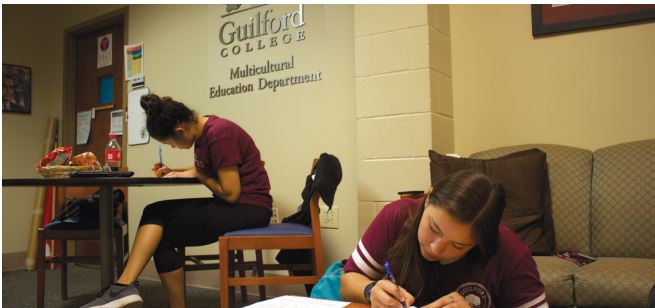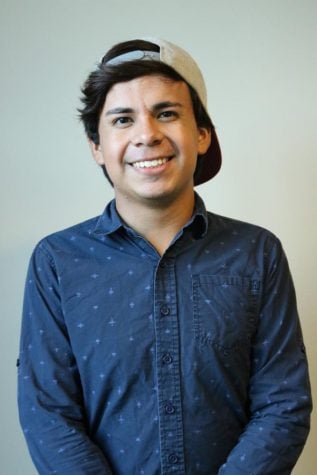At Guilford College and elsewhere, undocumented students are treated as second class citizens, whether because of ignorance or intolerance. Neither is okay.
Part of this is because people aren’t always exposed to what it means to be undocumented.
“You really don’t know what’s really going on until you start hanging out with these communities, these people,” said junior Marimar Mantuano. “My parents rarely exposed me to hanging out with undoc- umented students, so I didn’t know their struggles until I got here.”
At Guilford specifically, undocumented students feel as though they are not a priority.
“(Guilford is) the kind of school, in my opinion, that avoids having these kinds of students because (Guilford) wants to make money,” said Mantuano.
Because undocumented students cannot get money from the Free Application for Federal Student Aid, they often need to get more money from private institutions like Guilford.
This is something we don’t pay enough attention to at Guilford, whether it’s in the classroom, among peers or in financial aid.
“I am undocumented, so I can speak from my personal experience,” said sophomore and Hispanos Unidos de Guiford President Hector Suarez. “You hear a lot about not enough transparency through financial aid. That’s my biggest issue.”
Financial aid is a common area for undocumented students to feel lost or overlooked, according to first year and HUG Vice President María Peralta.
“I’m very vocal about being undocumented and stuff like that,” said Peralta. “I did go to financial aid once and asked them if I should fill out FAFSA, but they didn’t really answer my question at all.”
Part of the problem is a lack of knowledge among Guilford employees about how to help undocumented students. Sopho- more Jeniffer González, who wants to study abroad, observed this from several departments.
“Planning takes time as an undocumented student,” said González. “I have to look at those forms that I have to fill out, set aside an amount of money … to give to the government to read my application to approve or disapprove, plus the airplane fee.”
Although she has not gotten a lot of help, González does not fault any individual faculty members.
“Maybe they’ve never run into someone who’s undocumented and wants to study abroad,” said González. “I’m probably their first.”
The people at study abroad have been moving toward getting more resources for undocumented students.
“That’s something that we are working on,” said Assistant Director of Study Abroad Robert Van Pelt ’15. “I admit that I need to educate myself more on these policies and more of what we have here.
“There is support out there not only at Guilford College but in the field of international education.”
One of the ways we can fix these problems is preparing for these situations. People employed by Guilford should know tips for undocumented students about how to navigate campus life and how to educate others.
“Professors should be educated on what is right to say and what is not right to say,” said sophomore and HUG Secretary Dariana Vargas.
Another thing we can do is talk about the issue, especially those of us who are documented and have the privilege to be able to speak out without fear.
Outside of Guilford, we can also make an impact by voting on Nov. 8.
“When the elections started coming up months ago, I didn’t even think about voting,” said Mantuano, who is registered to vote in New York. “I was like, I’m going to be here in North Carolina, and I’m not going to have time to vote.
“Then I realized how important it was, listening to activists here at Guilford and even some professors, faculty and staff.”
Students can also educate themselves on what it means to be undocumented by attending HUG and Integrity for Guilford meetings and events, organizing on campus and doing their own research












